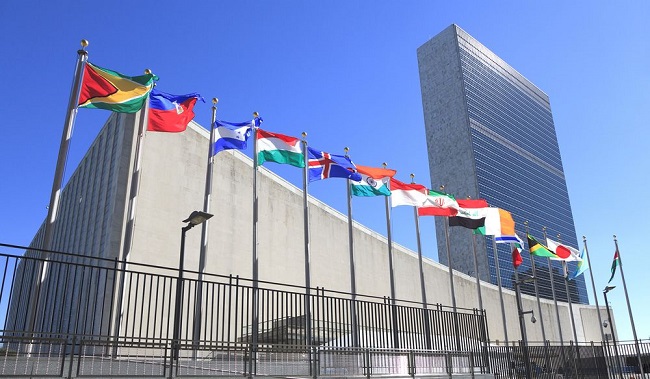The UN General Assembly on Thursday, July 28, 2022, adopted a historic resolution, declaring access to a clean water as well as healthy and sustainable environment a universal human right.

Some 161 Member States, including Nigeria, voted in favour of the resolution while eight abstained from voting.
The Member States who abstained are China, Russian Federation, Belarus, Cambodia, Iran, Syria, Kyrgyzstan and Ethiopia.
The resolution, based on a similar text adopted in 2021 by the Human Rights Council, calls upon States, international organisations, and business enterprises to scale up efforts to ensure a healthy environment for all.
The UN Secretary-General, António Guterres, welcomed the “historic” decision and said the landmark development demonstrates that Member States can come together in the collective fight against the triple planetary crisis of climate change, biodiversity loss and pollution.
“The resolution will help reduce environmental injustices, close protection gaps and empower people, especially those that are in vulnerable situations.
“Also, it will help environmental human rights defenders, children, youth, women and indigenous peoples,“ Guterres said in a statement.
He added that the decision would also help States accelerate the implementation of their environmental and human rights obligations and commitments.
“The international community has given universal recognition to this right and brought us closer to making it a reality for all,” the UN chief said.
Guterres underscored that however, the adoption of the resolution ‘is only the beginning’ and urged nations to make this newly recognised right ‘a reality for everyone, everywhere’.
In a statement, UN High Commissioner for Human Rights, Michelle Bachelet, also hailed the Assembly’s decision and echoed the Secretary-General’s call for urgent action to implement it.
“Today is a historic moment, but simply affirming our right to a healthy environment is not enough. The General Assembly resolution is very clear: States must implement their international commitments and scale up their efforts to realise it.
“We will all suffer much worse effects from environmental crises, if we do not work together to collectively avert them now,” she said.
Bachelet explained that environmental action based on human rights obligations provides vital guardrails for economic policies and business models.
“It emphasises the underpinning of legal obligations to act, rather than simply of discretionary policy. It is also more effective, legitimate and sustainable,” she added.
The text, originally presented by Costa Rica, the Maldives, Morocco, Slovenia and Switzerland in June 2021, was co-sponsored by over 100 countries.
It notes that the right to a healthy environment is related to existing international law and affirms that its promotion requires the full implementation of multilateral environmental agreements.
In 1972, the UN Conference on the Environment in Stockholm, which ended with its own historic declaration, was the first one to place environmental issues at the forefront of international concerns.
It marked the start of a dialogue between industrialised and developing countries on the link between economic growth, the pollution of the air, water and the ocean, and the well-being of people around the world.
UN Member States back then, declared that people have a fundamental right to “an environment of a quality that permits a life of dignity and well-being,” calling for concrete action and the recognition of this right.
Last October, after decades of work by nations at the front lines of climate change, such as the Maldives archipelago, as well as more than 1,000 civil society organisations, the Human Rights Council finally recognised this right and called for the UN General Assembly to do the same.
“From a foothold in the 1972 Stockholm Declaration, the right has been integrated into constitutions, national laws and regional agreements.
“Today’s decision elevates the right to where it belongs: universal recognition”, UN Environment chief, Inger Andersen, explained in a statement.
The recognition of the right to a healthy environment by these UN bodies, although not legally binding — meaning countries don’t have a legal obligation to comply — is expected to be a catalyst for action and to empower ordinary people to hold their governments accountable.
“So, the recognition of this right is a victory we should celebrate.
“My thanks to Member States and to the thousands of civil society organisations and indigenous peoples’ groups, and tens of thousands of young people who advocated relentlessly for this right.
“But now we must build on this victory and implement the right,” Andersen added.
By Cecilia Ologunagba
